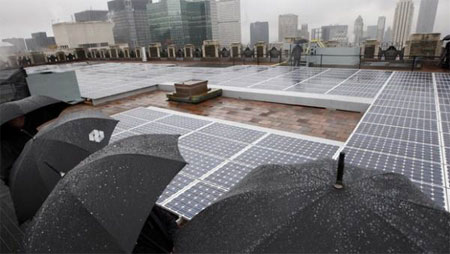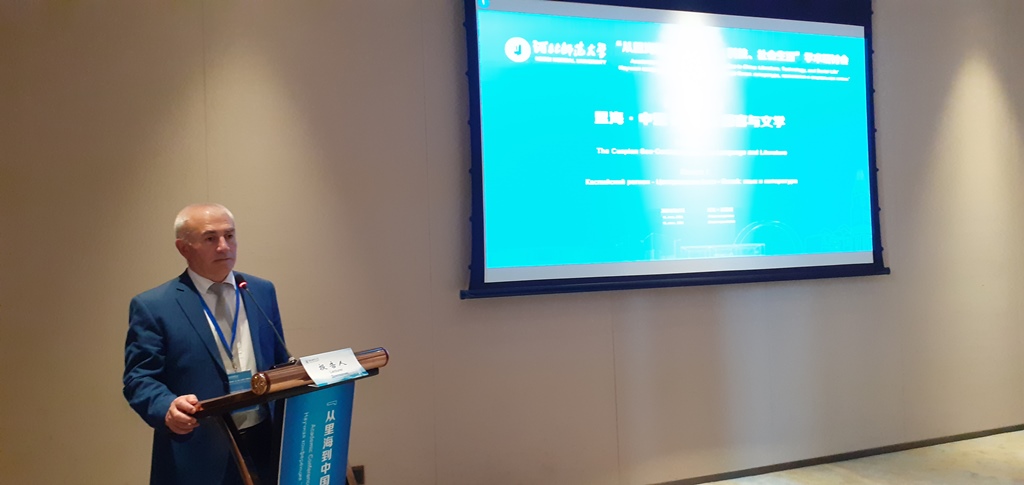
- A-
- A
- A+
Raindrops may help power the next-generation solar panel
Solar technology has improved gradually over the past decade with most of the advances focusing on extracting as much energy out of sunlight as possible. A group of researchers from China, however, has tackled another problem with solar power — generating power during periods of clouds and rain.
Scientists from the Ocean University of China (Qingdao) and Yunnan Normal University (Kunming, China) have created an all-weather solar cell that works both in the sun and in the rain.
The technology takes advantage of the unique qualities of graphene, which allow it to produce energy from, believe it or not, raindrops.
Like most solar panels, the new solar cell can generate energy from sunlight on sunny days using existing technology.
When the clouds roll in and raindrops start to fall, the solar cell then can switch to its graphene-based energy collection system. The critical component in the rain-based system is an aqueous form of graphene. Liquid graphene can conduct electricity due to its delocalized electrons that help set up a pseudocapacitor that can be used in the generation of electricity.
When rain drops hit the graphene-containing solar cell, the rain is dissociated into positive and negative ions. These positive ions are primarily salt-related ions, such as sodium, calcium, and ammonium that accumulate on the graphene surface.
This positive layer interacts with the negative electrons in the graphene to create a dual-layer system that acts like a pseudocapacitor. The difference in potential between the two layers is significant enough to produce voltage and a current.
Researchers hope to move their research beyond a proof of concept stage and begin to develop the technology into a viable method for generating electricity.
These all-weather cells would provide a boost to solar cell technology which currently only works when there is ample sunlight. In climates or seasons that are dominated by clouds and rain, an all-weather solar panel could provide a clean form of energy that is not possible with existing technology.
Similar News
Links


 Elm TV
Elm TV
 Photo
Photo
 Video
Video





